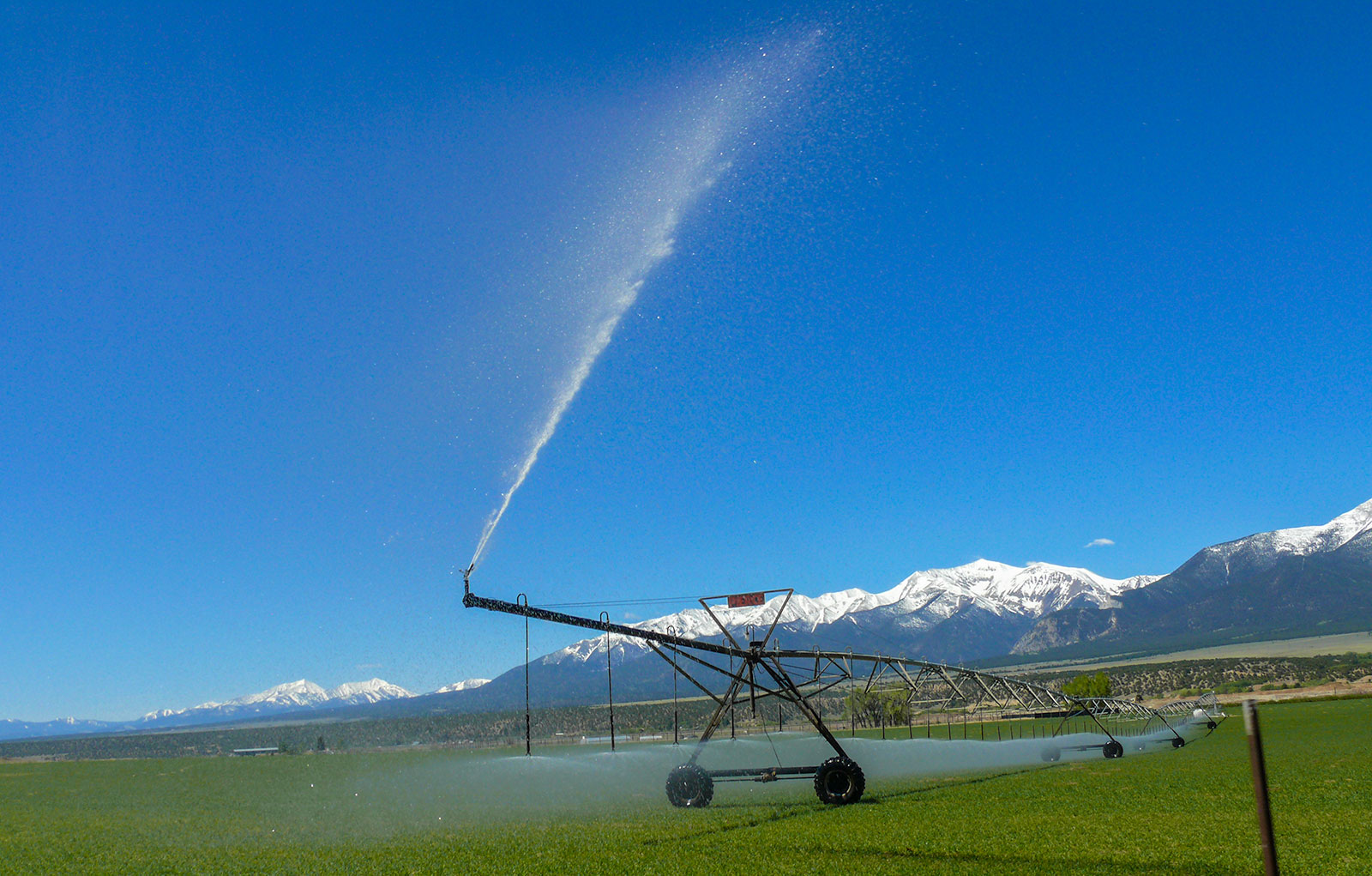Gov. Jared Polis signed Senate Bill 22-114 into law Wednesday, authorizing the designation of fire-suppression ponds that will be exempt from the Prior Appropriation System established by the Colorado Constitution.
The law allows up to 30 acres of fire-suppression ponds per county and bars the Colorado Division of Water Resources from requiring the replacement of water lost to evaporation from those ponds.
Chaffee County Commissioner Greg Felt, a member of the Colorado Water Conservation Board, supported the legislation.
“I don’t see it being needed in Chaffee County,” he said, “but I can certainly sympathize with the situation in Park County with so many folks living in the WUI (wildland-urban interface).”
Felt said he “wanted to support our neighbor county and (Park County) Commissioner Dick Elsner,” who “led the charge along with Colorado Counties Inc.”
Felt also serves as vice chair of the Upper Arkansas Water Conservancy District board of directors, which voted in April to authorize General Manager Terry Scanga and staff to advocate for amending the legislation.
Scanga said the new law allows “clear injury to water rights. Our legislators can’t just wave a wand and magically say stealing water is okay.” The Upper Ark District, he added, will protest if someone tries to get a fire-suppression pond exemption in the Upper Ark Basin as it would injure water rights that the District was established to protect.
Scanga said Chaffee County already has a better system in place, requiring new subdivisions to install cisterns that store water for firefighting. Cisterns don’t lose water to evaporation, and they have firefighting hookups. Also, ponds ice over during winter months; cisterns don’t.
Felt said he can see why the new law is “problematic from a pure water rights perspective” but noted the increasing importance of considering forest health issues, a perspective reflected in support for the new law by “the big players in the South Platte Basin” – Denver Water, the Northern Colorado Water Conservancy District and Aurora.
“A very small and well-prescribed amount of injury is perhaps acceptable in order to mitigate the risk of catastrophic wildfire,” Felt said, noting that, to be eligible for the new designation, ponds “have to have been in place for at least 50 years.”
After the Colorado Senate passed the bill in April, Scanga sent a letter to the House Agriculture, Livestock and Water Committee, urging changes to the bill to protect water rights owners.
The letter states, “The proposed SB22-114 would allow up to 30 surface acres of evaporation per county. This would equate to more than 90 acre-feet of depletions in each county,” which would potentially mean 1,000-1,400 acre-feet of water per year no longer available to Arkansas Basin water rights owners.
During the Upper Ark District’s May 12 board meeting, Scanga said he was “not against the concept of the bill. Using water from ponds has always been allowed at no charge” by water rights owners, including the Upper Ark District (as recently as the Decker Fire).
But this legislation, Scanga said, “flies in the face of all Colorado water laws and causes injury,” particularly to the ranchers who have historically donated their water to fight wildfires. He also noted that the ponds are currently storing water illegally.
During his legislative report at the May 12 meeting, Upper Ark consultant Richard Brown said, “We tried several times to get that bill amended, and Colorado Counties absolutely rejected it. … We were told by CCI that our concerns had no merit.”
Colorado water law requires that water lost to evaporation be replaced or “augmented”; otherwise, the ponds could be subject to being drained.
A statement distributed by CCI, reads, “The high cost and scarcity of augmentation water makes this an unattainable solution for some local communities.”
“Given the millions of dollars being thrown at wildfire,” Brown suggested, “some of that state money could go to augmentation for these fire-suppression ponds” rather than eroding state water law.
Brown also noted the “absolute support from Northern Water, Denver, Colorado Springs, Aurora and other large powerful water organizations.” He characterized the legislation as a “complete override of controls for out-of-priority diversion” and expressed concern that the law will set a precedent.
“We’re starting to see a decreasing grasp of water law generally in the legislature,” Brown said. With the urbanization of water providers, “there seems to be more willingness in the water community to focus on what they want at the cost of the institutional structure. We’re losing the foundation.”
Felt agreed with Brown’s concerns. “The legislators on some of the committees said things (about water) that were really off base. That is a real concern.”
Legislative consultant Ken Baker, a founding member of the Upper Ark District, said legislators are creating new priorities on the state’s rivers, overriding 130-year-old water rights, which are property rights. He compared the situation to taking private property through condemnation.
Brown concurred, saying this could be considered “an unconstitutional taking of private property.”
Local rancher and Upper Ark Board Chairman Tim Canterbury noted that the Colorado Cattlemen’s Association opposed the new law.
Fremont County farmer and Upper Ark board member Manny Colon said that the Ditch and Reservoir Company Alliance also opposed the legislation.
“The really sad thing about this is they’re trying to play this as if it’s going to help forest fires,” said Scanga. “It’ not going to change the fire dynamic. … Fear and emotion has driven this legislation at the expense of reason.”








